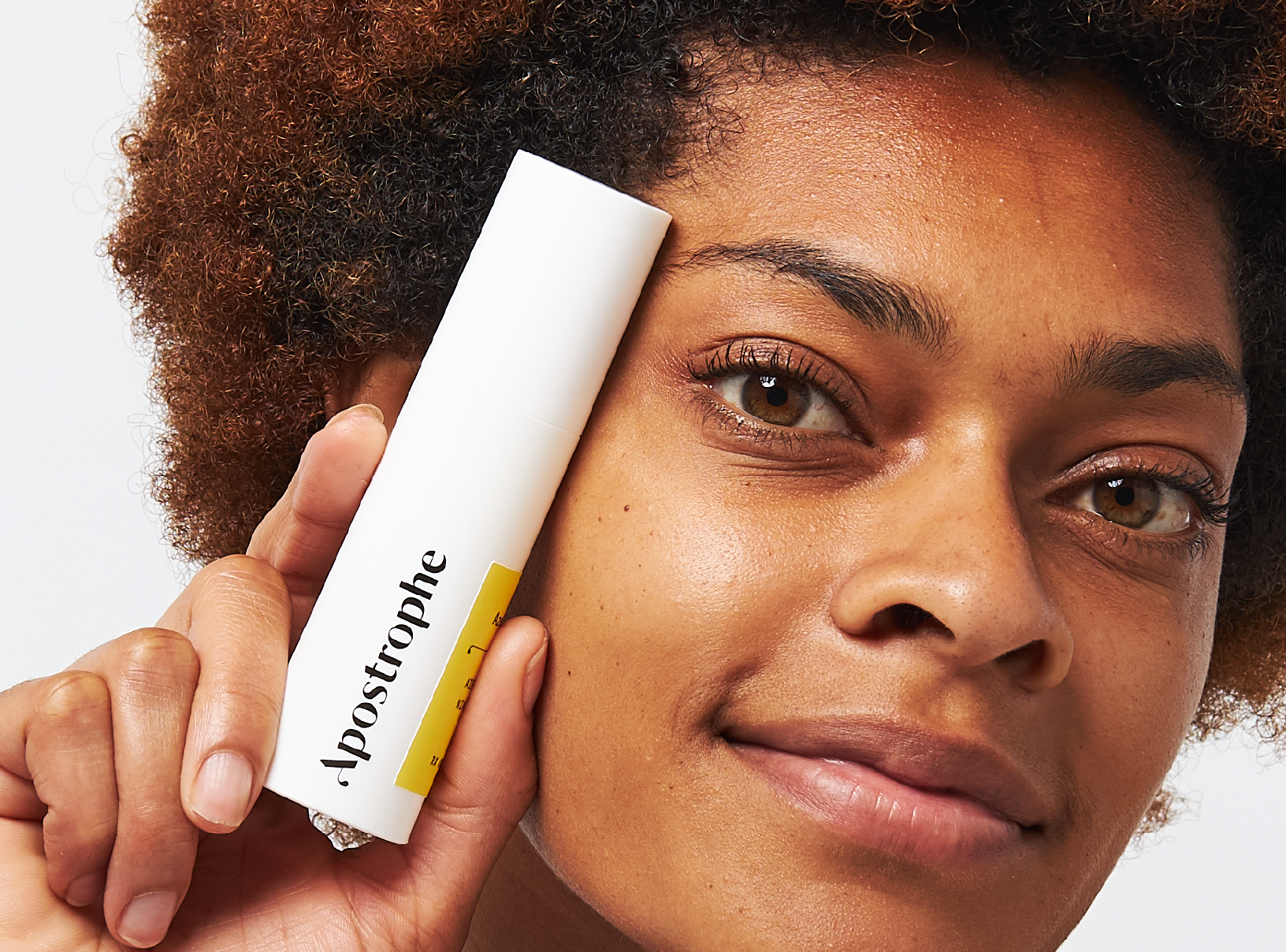Education
Using retinol and Vitamin C together
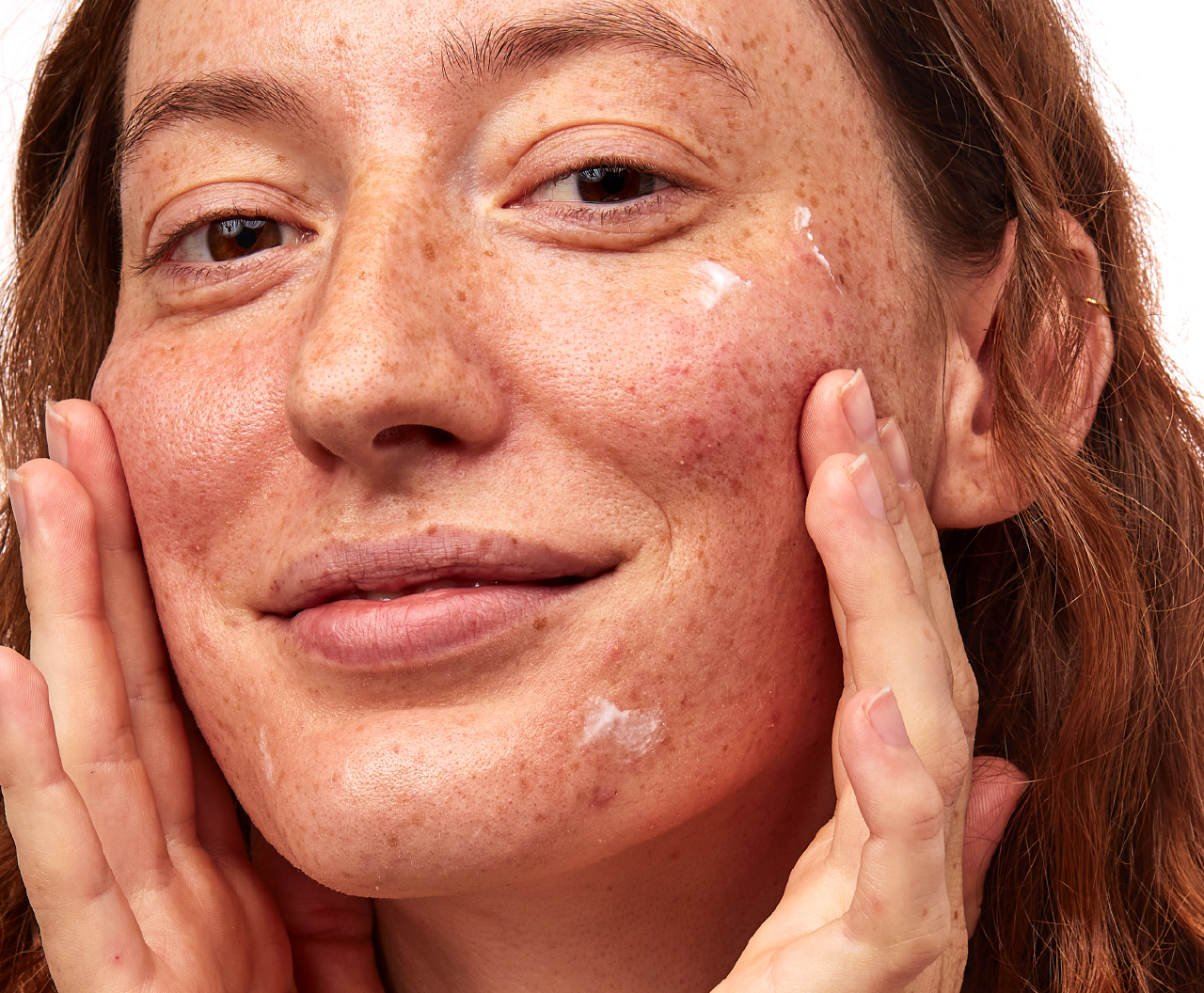
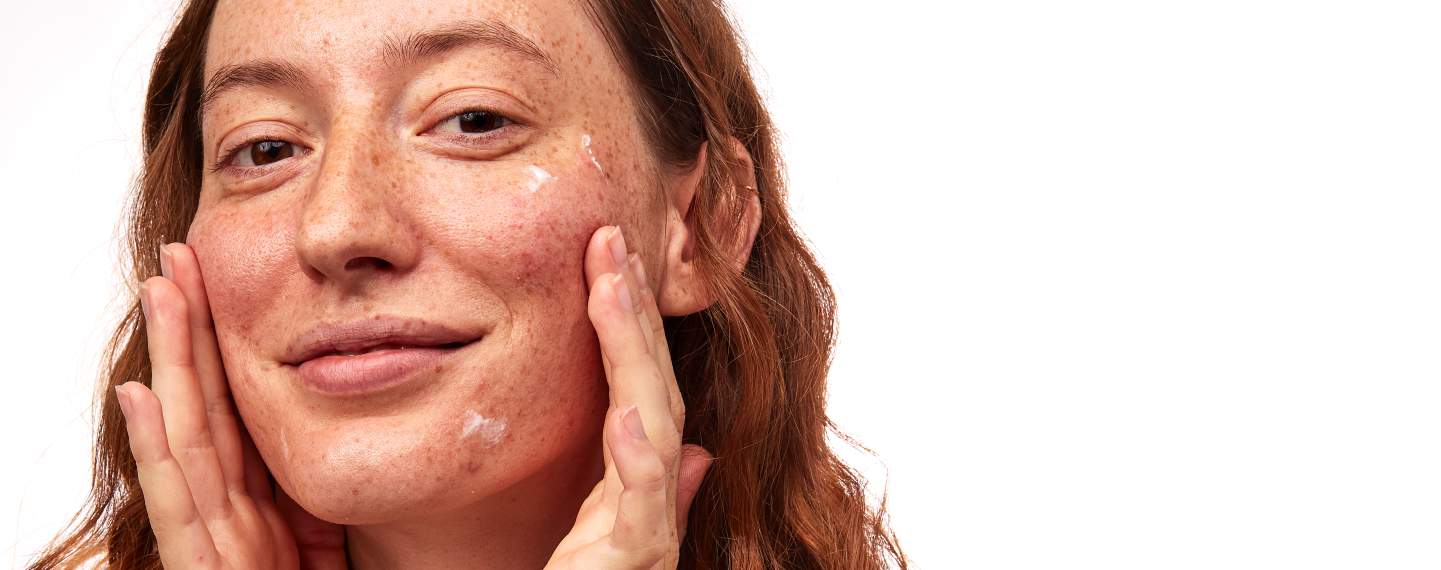
SHARE
Education
Using retinol and Vitamin C together
Medically reviewed by Kristin Hall, FNP
Written by Apostrophe Team
Last updated 4/1/2024
Retinol and Vitamin C are two of the most popular topical anti-aging skin compounds on the market.
Both have proven benefits to collagen production, and each one offers additional benefits that can give your skin the advantages it needs to recover from damage and give a youthful glow.
Given that they’ve both been proven safe and effective, a lot of women are probably wondering: can I use both?
The answer is complicated, as you might suspect, but there are ways in which you can effectively use both treatments without causing any harm to your face. You just have to understand how they work together.
The Benefits of Using Both Retinol & Vitamin C
Both retinol and vitamin C provide a multitude of skin health benefits, and they can be an effective system for reversing aging damage when used together.
Retinols like tretinoin, which has been prescribed by dermatologists since the ‘60s, have been shown to improve the synthesis of collagen.
They’re also effective at helping your epidermis discard dead skin cells more effectively, so the young, healthier cells can shine through.
Meanwhile, vitamin C is one of the most important compounds in helping your skin keep a healthy glow and is particularly helpful in fighting sun damage.
Sunlight beats up your skin throughout the day. Typically, vitamin C acts as the primary antioxidant to fight free radicals caused by UV rays, which left unmitigated will throw a wrench in the normal production of new cells and collagen in the dermis.
With reduced levels of vitamin C, your skin is left without the necessary tools to deal with the free radicals created by radiation.
Using vitamin C will help give your skin that protection it needs to keep healthy cellular regeneration going unaffected.
Can You Use Them Simultaneously?
The short answer to whether or not you can use retinol and vitamin C treatments at the same time is yes. But the longer answer involves deciding what “the same time” means.
Concurrent treatment with both retinol and vitamin C is possible, and it’s mostly safe to use them both daily. But there are some factors to consider before jumping on the two-a-day bandwagon, like whether you’ve used either compound in the past, and how sensitive your skin is.
You should be careful when combining the two, particularly at first, as your skin may be sensitive to the sudden addition of both compounds, particularly because they both are considered active treatments.
For example, your skin may get irritated if you use a serum with vitamin C (which is acidic) as well as a retinol cream, or if you use a retinol serum along with a prescription retinol cream.
Irritation is a known potential side effect of both compounds, particularly with prescription retinol formulations like tretinoin, whose side effects can include irritation, redness, and peeling in certain cases with certain skin types.
Can They Be Combined?
There’s a big difference between using retinol and vitamin C concurrently, and combining the two for use simultaneously. In addition to the irritation risks of starting two different skin treatments at the same time, there are also potential problems from applying them at the same time.
Conventionally, this has been advised against for a few reasons. First of all, vitamin C and retinol have different solubility requirements. Vitamin C is soluble in water, whereas vitamin A compounds are soluble in oil.
Used separately, topical creams and serums don’t cause each other problems, but if you’re layering the two, it can make both treatments less effective.
In the past, there were also assumptions about the efficacy of these treatments that had to do with pH levels—they were more effective at conflicting pH levels, and combining two treatments could make for a less effective experience.
These days, pre-combined cosmetic formulations have been shown in limited studies to offer a stable, effective solution for using both vitamin C and retinol at the same time.
A 2012 study noted some promising results, though it noted a lack of data or explanation as to how stability is achieved in these cases. In other words, research is ongoing as to whether combinations are an alternative to two separate treatments.
Using Retinol & Vitamin C For Skincare
There’s a lot more data to show that using these two treatments concurrently can have a big impact on your skin health.
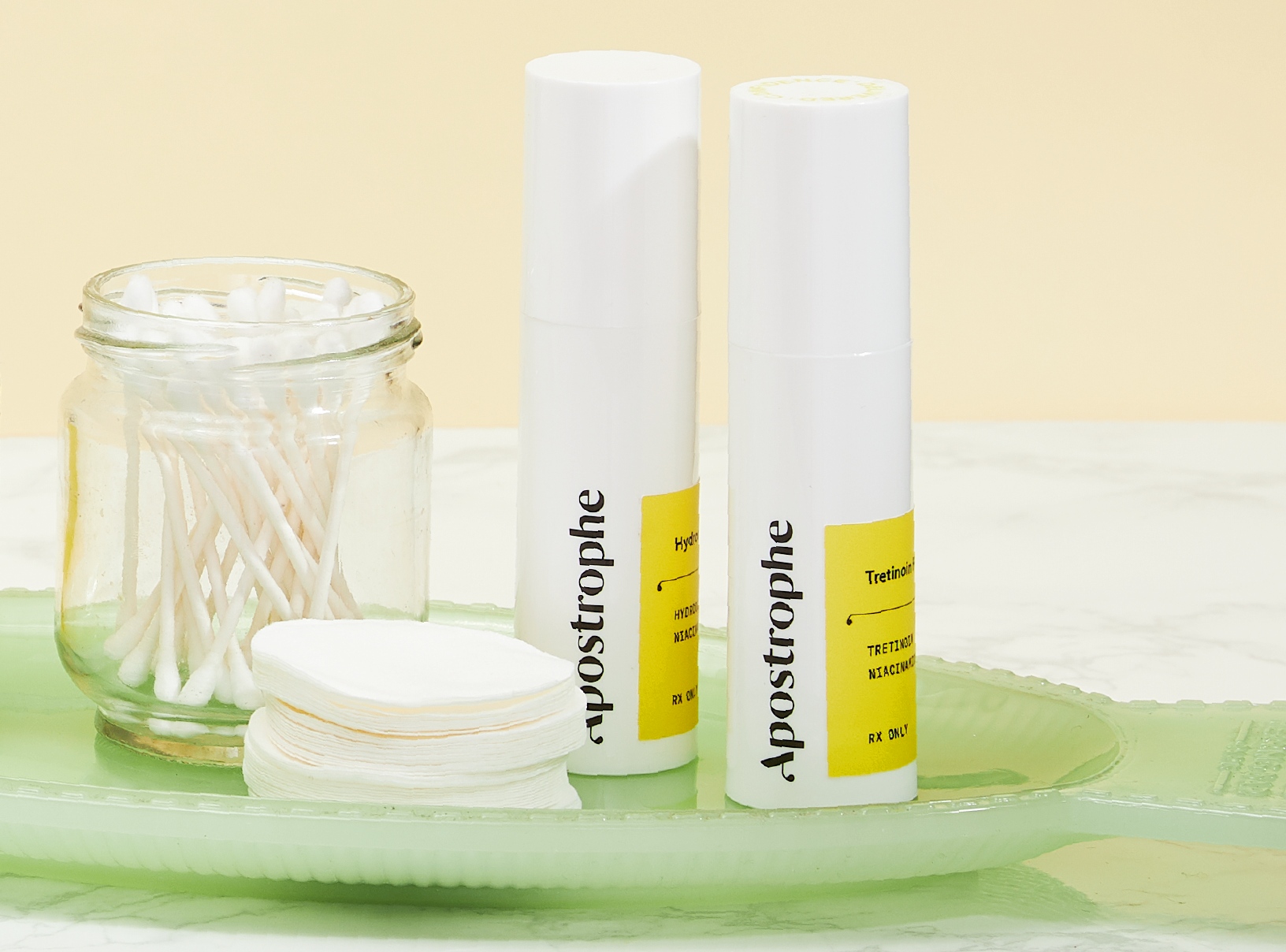
HYPERPIGMENTATION TREATMENT
Target dark spots and hyperpigmentation with customized prescription treatment.
And spreading them throughout the day doesn’t just allow the compounds to work more effectively; it also allows your skin time to react and rebalance after each treatment.
Because vitamin C helps fight sun damage, it’s best to start the day with a vitamin C treatment (and a derm-approved sunscreen).
Retinol can add additional sun sensitivity to your skin, so it’s best to avoid doing that before heading out for the day, and leave it for an evening treatment.
One of the most effective retinoids is the prescription medication tretinoin. Learn more about tretinoin here, and see if it’s right for you.
References:
https://www.health.harvard.edu/blog/skin-serum-what-it-can-and-cant-do-2018061214029 https://www.ncbi.nlm.nih.gov/pmc/articles/PMC3673383/#:~:text=Vitamin%20C%20is%20a%20potent,for%20the%20treatment%20of%20hyperpigmentation
Like what you just read? Sign up for our email list to get the scoop on skincare science delivered straight to your inbox.

Education
What is milia?
What is milia? Today, we’re jumping into one type of bump that you may have heard about most commonly in infants — milia.
Read More
Education
Best moisturizer for acne-prone skin
If you have combination acne-prone skin, figuring out which moisturizer is best for your skin might be tough. In this guide, we break down the best moisturizer for combination, acne-prone skin.
Read More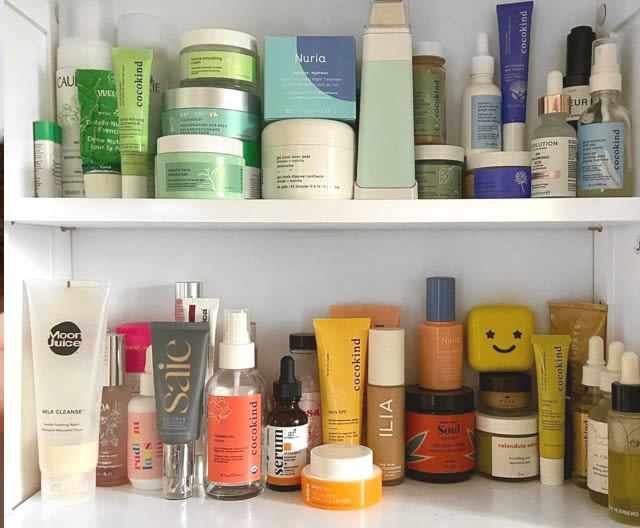
Education
How to build a face care routine
As you get into skincare, it might seem overwhelming, especially trying to figure out the order you're supposed to apply products in. Below, we detail how to build a face care routine for your skin!
Read More